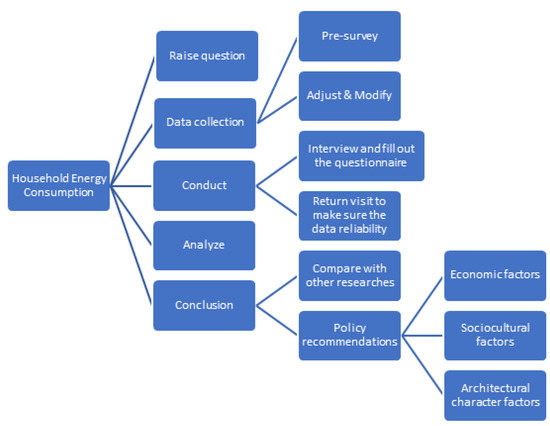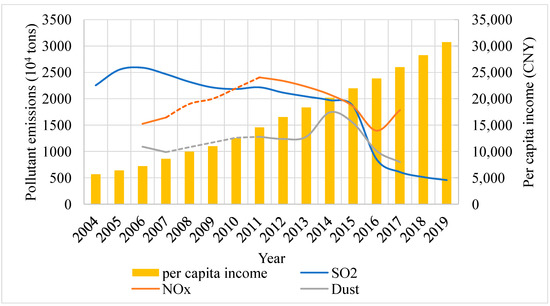Energy Economics and Policy in China
Share This Topical Collection
Editor
 Prof. Dr. Feng Wang
Prof. Dr. Feng Wang
 Prof. Dr. Feng Wang
Prof. Dr. Feng Wang
E-Mail
Website
Collection Editor
Department of Industrial Economics, School of Economics and Finance, Xi’an Jiaotong University, Xi’an 710061, China
Interests: energy economics; climate change economics; environmental economics
Topical Collection Information
Dear Colleagues,
The Guest Editor is inviting submissions to a Special Issue of Energies on the subject area of “Energy Economics and Policy in China”. China is the largest energy consumption country and carbon emitter in the world. In order to cope with global warming and to strengthen energy security, China is making unremitting efforts to promote the energy revolution and reduce greenhouse gas emissions. In this practice, a large number of theoretic questions relating to energy economics and energy policy urgently need to be answered.
This Special Issue will deal with energy economics and policy in China. Topics of interest for publication include but are not limited to: energy revolution, energy transition, energy markets, energy efficiency, energy security, sustainable energy, renewable energy, clean energy, decarbonisation, carbon capture and storage, carbon emission reduction, carbon emission peak, and carbon neutrality.
Prof. Dr. Feng Wang
Collection Editor
Manuscript Submission Information
Manuscripts should be submitted online at www.mdpi.com by registering and logging in to this website. Once you are registered, click here to go to the submission form. Manuscripts can be submitted until the deadline. All submissions that pass pre-check are peer-reviewed. Accepted papers will be published continuously in the journal (as soon as accepted) and will be listed together on the collection website. Research articles, review articles as well as short communications are invited. For planned papers, a title and short abstract (about 100 words) can be sent to the Editorial Office for announcement on this website.
Submitted manuscripts should not have been published previously, nor be under consideration for publication elsewhere (except conference proceedings papers). All manuscripts are thoroughly refereed through a single-blind peer-review process. A guide for authors and other relevant information for submission of manuscripts is available on the Instructions for Authors page. Energies is an international peer-reviewed open access semimonthly journal published by MDPI.
Please visit the Instructions for Authors page before submitting a manuscript.
The Article Processing Charge (APC) for publication in this open access journal is 2600 CHF (Swiss Francs).
Submitted papers should be well formatted and use good English. Authors may use MDPI's
English editing service prior to publication or during author revisions.
Keywords
- Energy revolution
- Energy transition
- Energy markets
- Energy efficiency
- Energy security
- Sustainable energy
- Renewable energy
- Clean energy
- Decarbonization
- Carbon capture and storage
- Carbon emission reduction
- Carbon emission peak
- Carbon neutrality.
Published Papers (3 papers)
2022
Open AccessArticle
Household Energy Consumption Patterns and Carbon Emissions for the Megacities—Evidence from Guangzhou, China
by
Lu Jiang, Bowenpeng Ding, Xiaonan Shi, Chunhua Li and Yamei Chen
Cited by 8 | Viewed by 1951
Abstract
Over the last 20 years, energy consumption in the residential sector in China has grown rapidly, and the growth is faster than that of any other energy form. To assess the limitations of the spatial characteristics of household energy consumption in urban areas,
[...] Read more.
Over the last 20 years, energy consumption in the residential sector in China has grown rapidly, and the growth is faster than that of any other energy form. To assess the limitations of the spatial characteristics of household energy consumption in urban areas, this paper selected Guangzhou as the research area. Specifically, the old town, core area, central area and peri-urban areas, which best reflect the evolutionary characteristics and spatial differentiation of households, were assessed. Based on the surveyed database of community-scale household energy consumption (N = 1097), the spatial heterogeneity of household energy consumption and carbon emissions at the community scale were assessed through exploratory spatial data analysis and the standard deviation ellipse method. The results report that (1) the main sources of energy consumption in Guangzhou households were water heating equipment, kitchen equipment and refrigeration equipment, which were related to the climatic conditions and cultural traditions of the city. (2) There was significant spatial heterogeneity in the carbon emissions from household domestic energy use in Guangzhou. (3) The economic level, the effects of the Lingnan culture and the characteristics of residents are the main drivers influencing the spatial characteristics of household energy consumption and carbon emissions in Guangzhou. We propose that policy development should actively promote energy-efficient equipment, such as water heating and cooling equipment, in urban households and take full account of the basic household energy needs of residents in old urban and suburban areas while promoting the development of low-carbon buildings.
Full article
►▼
Show Figures
Open AccessArticle
Macro-Economic Impact of Policies for Controlling Fossil Energy Consumption in China
by
Fang Yang and Jie Dian
Cited by 6 | Viewed by 2600
Abstract
This paper analyzes the macro-economic impact of controlling fossil energy consumption in China by using a social accounting matrix framework. The empirical results show that, first, restricting the exploitation of fossil energy resources will lead to a decline in the output of other
[...] Read more.
This paper analyzes the macro-economic impact of controlling fossil energy consumption in China by using a social accounting matrix framework. The empirical results show that, first, restricting the exploitation of fossil energy resources will lead to a decline in the output of other production activities, thereby reducing the factor income and the living standards of residents. Second, improving energy efficiency can promote increased output in other production sectors, and raise factor returns and residents’ living standards. Third, raising the price of energy products will result in higher costs of the entire society. The stronger the dependence on the energy sector, the greater the increase in the industrial cost. Therefore, the government should increase investment in energy efficiency, keep to energy intensity constraints, restrict the extraction amount of energy resources, and reasonably control energy prices based on market environmental factors.
Full article
►▼
Show Figures
Open AccessArticle
Policy Effect on Clean Coal-Fired Power Development in China
by
Jianyun Zhang, Xinxin Li and Lingying Pan
Cited by 10 | Viewed by 2921
Abstract
The coal power policy has been influencing the development of China’s coal power industry from the aspects of quantity control, technological progress, and market-oriented reform. Meanwhile, the strategic coal power policy of the mid- and long-term future is yet to be well-designed under
[...] Read more.
The coal power policy has been influencing the development of China’s coal power industry from the aspects of quantity control, technological progress, and market-oriented reform. Meanwhile, the strategic coal power policy of the mid- and long-term future is yet to be well-designed under the carbon peak and neutrality targets. Therefore, it is necessary to have a comprehensive overview of the coal power policy during the past and give targeted prospects for policy-makers. This paper discusses the policy effect on the development and technological progress of the coal power industry by giving an overview of the policy and reform processes of the coal power industry in China in the past 20 years. The results indicate that China’s coal power policy has promoted the progress of coal power generation technology, optimized the coal power structure, accelerated the diversified investment in the power industry, and alleviated the overcapacity problem of coal power generation. After discussion, we conclude that: (1) It is necessary to gradually reduce the average generation hours of coal-fired power units while retaining high-quality coal-fired power units. (2) The renewable energy enterprises that adopt the support services of coal power enterprises should provide reasonable capacity compensation costs to create favorable conditions and achieve sustainable development for China’s coal power industry. (3) To deploy coal power units combined with large-scale renewable energy in the western and northern regions will achieve efficient energy utilization. (4) Different strategies should be adopted for different coal power units, and the peak regulation potential of coal power units with low-capacity parameters should be explored.
Full article
►▼
Show Figures








